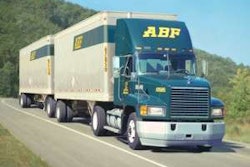The Federal Motor Carrier Safety Administration has proposed to amend the physical qualifications for drivers and the instructions for the medical examination report to clarify that drivers may not use Schedule I drugs and be qualified to drive commercial motor vehicles under any circumstances. The proposal also harmonizes FMCSA’s provisions regarding pre-employment and return-to-duty test refusals with corresponding Department of Transportation-wide provisions. Finally, the proposal corrects inaccurate uses of the term “actual knowledge.”
FMCSA says the rulemaking, published Friday, July 8, in the Federal Register, is necessary to reconcile and resolve a perceived inconsistency among portions of the Federal Motor Carrier Safety Regulations, DOT-wide drug regulations and DEA regulations. Although the FMCSRs clearly prohibit drivers from using Schedule I drugs, the agency says that some may interpret other parts of the regulations as permitting their use if recommended by a licensed medical practitioner.
Currently, federal law only allows for their use in research, chemical analysis or manufacture of other drugs, and in certain circumstances, a medical review officer can verify a drug test negative when he or she has information that a driver is using a drug under a physician’s prescription. However, under DOT-wide rules, no medical review officer may verify a drug test negative for a Schedule I drug, even if he or she has information that a driver is using the Schedule I drug in accordance with a physician’s recommendation.
Interpreting FMCSA’s regulations to permit drivers to use Schedule I drugs would put the FMCSRs in direct conflict with DOT’s comprehensive drug testing program, which does not permit drivers to use Schedule I drugs. FMCSA does not believe this is a reasonable interpretation of the regulations, but to avoid any confusion, the proposed rulemaking would harmonize the FMCSRs with DOT-wide regulations and DEA regulations, and make it clear that drivers may not use Schedule I drugs under any circumstances.
In addition, 49 CFR 382.211 prohibits drivers from refusing to submit to certain types of
drug or alcohol tests and establishes such refusals as violations of FMCSA’s drug and alcohol regulations. Currently, under DOT-wide regulations, drivers who refuse to submit to preemployment and return-to-duty tests must complete a prescribed return-to-duty process. However, § 382.211 is inconsistent with the DOT-wide drug and alcohol rules in that it does not include refusals to submit to pre-employment and return-to-duty tests as
violations. FMCSA proposes to correct this inconsistency by adding these two types of
refusals to the prohibitions at § 382.211.
Finally, FMCSA proposes changes to clarify the agency’s rules prohibiting an employer from using a driver about whom the employer has actual knowledge of drug or alcohol use. Sections 382.201 and 382.215 currently state that an employer may not allow an employee to perform safety-sensitive functions if the employer has actual knowledge that the employee has tested positive for drugs or has an alcohol concentration of .04 or greater. However, the term “actual knowledge” is defined in § 382.107 to mean the observation of alcohol or controlled substances use, and is not intended to refer to testing results. FMCSA says that as a result, the use of the term “actual knowledge” in these sections is not appropriate. The agency proposes to replace the term “actual knowledge” with “knowledge” in these sections. This should clarify that these prohibitions refer to the knowledge of test results, not employer observation of prohibited conduct.
For more information, go to www.regulations.gov; the docket number is FMCSA-2011-0073.











